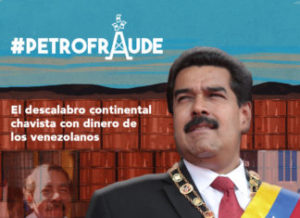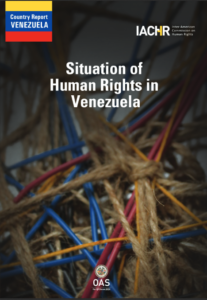University of Oxford Politics Lecturer Maryhen Jiminez Morales discusses expected changes for Venezuela on the global stage under the leadership of Juan Guaidó (above).
Beyond billions in investments, Vladimir Putin is protecting a fellow autocrat against the United States and his own people, the Economist states:
Tatyana Vorozheikina, a Russian expert on Latin America, argues that the hollowing out of institutions and the privatisation of state power is precisely what Russia and Venezuela have in common. “When people who control the executive also control the most lucrative economic resources, a country turns into an institutional desert. In this situation any destabilisation is extremely dangerous,” she says.
 Can Nicolás Maduro hold on to power in Venezuela? political scientists Eva Bellin and David Pion-Berlin ask. That may turn largely on whether the military will stand by him. At Slate, political scientists Bruce Bueno de Mesquita and Alastair Smith argue the Venezuelan military will remain loyal as long as Maduro “can credibly promise to continue to pay his generals.”
Can Nicolás Maduro hold on to power in Venezuela? political scientists Eva Bellin and David Pion-Berlin ask. That may turn largely on whether the military will stand by him. At Slate, political scientists Bruce Bueno de Mesquita and Alastair Smith argue the Venezuelan military will remain loyal as long as Maduro “can credibly promise to continue to pay his generals.”
We disagree. Our research — and that of others on Latin America, the Middle East and beyond — shows that while military leaders do consider their material interests, that’s not the only factor in deciding where to throw their support. Here are four major factors that shape whether the military will defect or defend, they write for the Post’s Monkey Cage:
- Do the military elite have personal stakes in the survival of this regime? Of course military leaders consider their own material interests. So long as the regime delivers high pay and access to business opportunities, whether clean or corrupt, these elites have strong incentives to stay loyal. But politics also matter. In ethnically divided societies — which Venezuela is not — ethnic proximity may be important. The Syrian military’s Alawi unitshave stood by dictator Bashar al-Assad through all the bloodshed because their survival remains linked to Assad’s..….
- The military will assess the leader’s resolve and the likelihood of his survival. If the military correctly calculates that the leader will prevail, then staying loyal will pay off. But if they believe the leader to be on his way out, why put their necks on the line? For instance, in China, the military stood by Deng Xiaoping during the 1989 Tiananmen crisis— when tens of thousands of students demonstrated for democratic freedoms in Beijing’s Tiananmen Square — thanks to Deng’s success at projecting that he was fully in charge and had the support of all major sociopolitical forces.….
-
 Military elites are deeply concerned about the integrity of their institution. Military leaders care about preserving discipline, hierarchy and especially unity. What social scientists call “institutional fracture” kills military effectiveness. The military leadership wields power only as long as its subordinates stay loyal. If the lower ranks refuse to follow orders, the armed forces cannot fulfill their central mission — safeguarding national security. Worse still, division within the ranks could trigger civil war. That’s why the military leadership will not stand by a regime that deeply divides its forces and threatens their defection….
Military elites are deeply concerned about the integrity of their institution. Military leaders care about preserving discipline, hierarchy and especially unity. What social scientists call “institutional fracture” kills military effectiveness. The military leadership wields power only as long as its subordinates stay loyal. If the lower ranks refuse to follow orders, the armed forces cannot fulfill their central mission — safeguarding national security. Worse still, division within the ranks could trigger civil war. That’s why the military leadership will not stand by a regime that deeply divides its forces and threatens their defection…. - Public opinion about the regime may nudge the military. Military leaders also consider whether civil society and the public at large support the regime. If citizens generally perceive a regime as illegitimate, the military elite face a greater chance that junior officers or conscripts will defect. This is especially likely if the junior officers are poorly paid and identify with average citizens’ economic plight, and if conscripts are drafted from a socioeconomic cross-section of society.
Are elections the answer?

Source: Journal of Diplomacy
Although elections are the best option to resolve Venezuela’s crisis, it is crucial to understand that the country does not have the structural framework to immediately hold free and fair elections, according to the International Republican Institute’s Antonella Davalos and Luis Robles. @LRobles0
“Military defections are even more likely if civil society can mount large and peaceful popular protests, which don’t trigger the military’s impulse to repress in the name of order and security,” Bellin and Pion-Berlain add. RTWT
Eva Bellin is the Myra and Robert Kraft Professor of Arab Politics at Brandeis University and the Crown Center for Middle East Studies. David Pion-Berlin is a professor of political science at the University of California at Riverside and co-author of “Soldiers, Politicians, and Civilians: Reforming Civil-Military Relations in Democratic Latin America” (Cambridge University Press, 2017).







